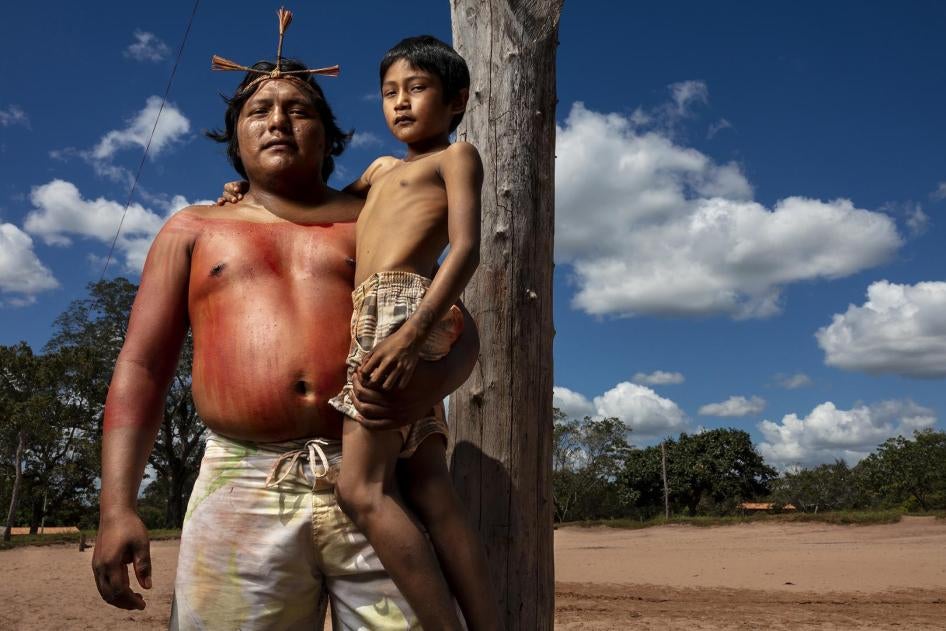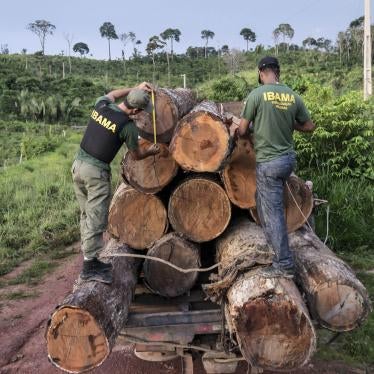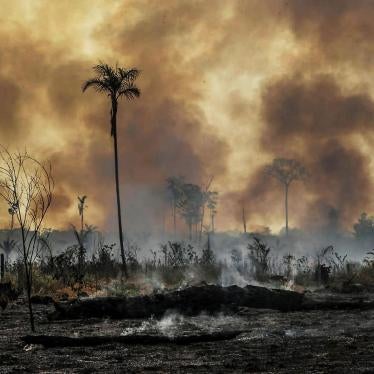For the first time, Brazils’ Attorney General’s office has produced a report analyzing violence against Indigenous peoples, Afro-Brazilian rural communities, and other at-risk rural communities by people engaged in illegal logging, mining, and land grabbing, mostly in the Amazon.
The report, published May 5, was produced in response to calls by Human Rights Watch for just such data.
Last September, Human Rights Watch released a 165-page report, “Rainforest Mafias: How Violence and Impunity Fuel Deforestation in Brazil’s Amazon,” which showed how the government is failing to protect the rainforest and its defenders, to the point that it did not even keep data on the violence.
After our report launch, Human Rights Watch met with Brazil’s federal prosecutors several times, as well as with Attorney General Augusto Aras in January. We encouraged them to study violence against rainforest defenders, with the aim of identifying criminal patterns and ensuring that each threat or attack is thoroughly investigated and prosecuted. We also urged the National Indian Foundation (FUNAI)—the agency tasked with protecting and promoting indigenous rights—to provide information about violence against indigenous peoples protecting the rainforest. FUNAI, in turn, asked the Attorney General’s office for the data.
The report by the Attorney General’s office analyzes 390 cases of threats and acts of violence committed during the past decade that have been prosecuted or investigated by federal officials. It concludes that conflicts related to the occupation and use of lands and resources, including timber, are the main cause of violence against Indigenous peoples, Afro-Brazilian rural communities, and other at-risk rural communities.
While violence related to natural resources in Brazil has been chronic for decades, a lack of data had hindered government agencies’ capacity to understand the scope and nature of the problem—and to create viable policies to address it. Federal and state authorities should use the Attorney General’s data to improve policies and strengthen enforcement of existing laws intended to protect the environment and the rights of indigenous peoples.
The report is a significant step forward in an era when Brazil’s President Jair Bolsonaro is scaling back enforcement of environmental laws, weakening federal environmental agencies, and publicly vilify individuals and groups working to protect the rainforest.
The stakes of the showdown between the forest defenders and the criminal networks that threaten, attack and kill them extend far beyond Brazil. As the world’s largest tropical rainforest, the Amazon plays a vital role in mitigating climate change—absorbing and storing billions of tons of carbon.
Human Rights Watch will continue to engage with federal prosecutors and FUNAI to shore up the protection of indigenous people, as well as for other residents of the Amazon who curb deforestation by alerting authorities to illegal activities that might otherwise go undetected. Brazil has an obligation to protect those who defend the forest, and by extension, the planet.








